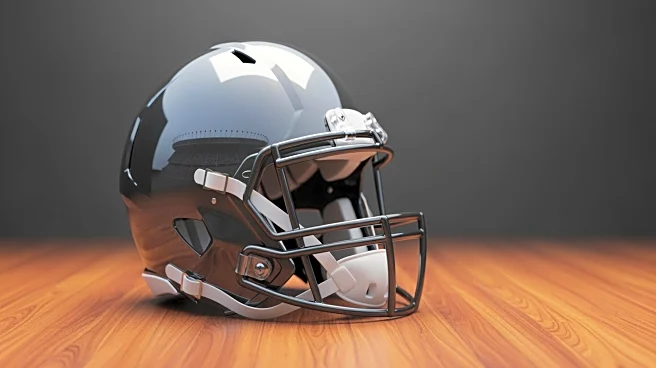What's Happening?
The Cleveland Browns made several trades before the NFL trade deadline, including sending Joe Tryon-Shoyinka and a 2026 seventh-round pick to the Chicago Bears for a sixth-round selection in 2026. Despite rumors, running back Jerome Ford was not traded,
although he had been speculated to move to the Los Angeles Chargers due to their need for running back support. Ford, who has seen limited playtime this season, expressed dissatisfaction on social media about remaining with the Browns. Ford's performance last year included 565 rushing yards and an average of 5.4 yards per carry, but this season he has only managed 73 yards from 21 carries. The Chargers are facing a shortage in their running back lineup due to injuries, making Ford a potential asset for them.
Why It's Important?
Jerome Ford's situation highlights the dynamics and pressures within NFL teams as they navigate player trades and roster management. The Browns' decision to retain Ford, despite his reduced role, could impact team morale and performance. For the Chargers, acquiring Ford could have bolstered their injury-depleted running back lineup, potentially affecting their competitiveness in the AFC West. The trade decisions reflect broader strategic considerations that NFL teams must balance, including player development, team needs, and financial implications.
What's Next?
Ford's future with the Browns remains uncertain, as his dissatisfaction could lead to further discussions about his role or potential trade opportunities. The Chargers may continue to seek alternatives to strengthen their running back position, given their current injury challenges. The Browns will need to address Ford's concerns to maintain team cohesion and performance. As the season progresses, both teams will likely reassess their strategies based on player availability and performance outcomes.
Beyond the Headlines
Ford's situation underscores the personal and professional challenges athletes face in the NFL, where team decisions can significantly impact their careers. The emotional and psychological aspects of being traded or remaining in a less favorable position can affect player performance and team dynamics. This scenario also highlights the importance of effective communication and management within sports organizations to ensure player satisfaction and optimal team functioning.















